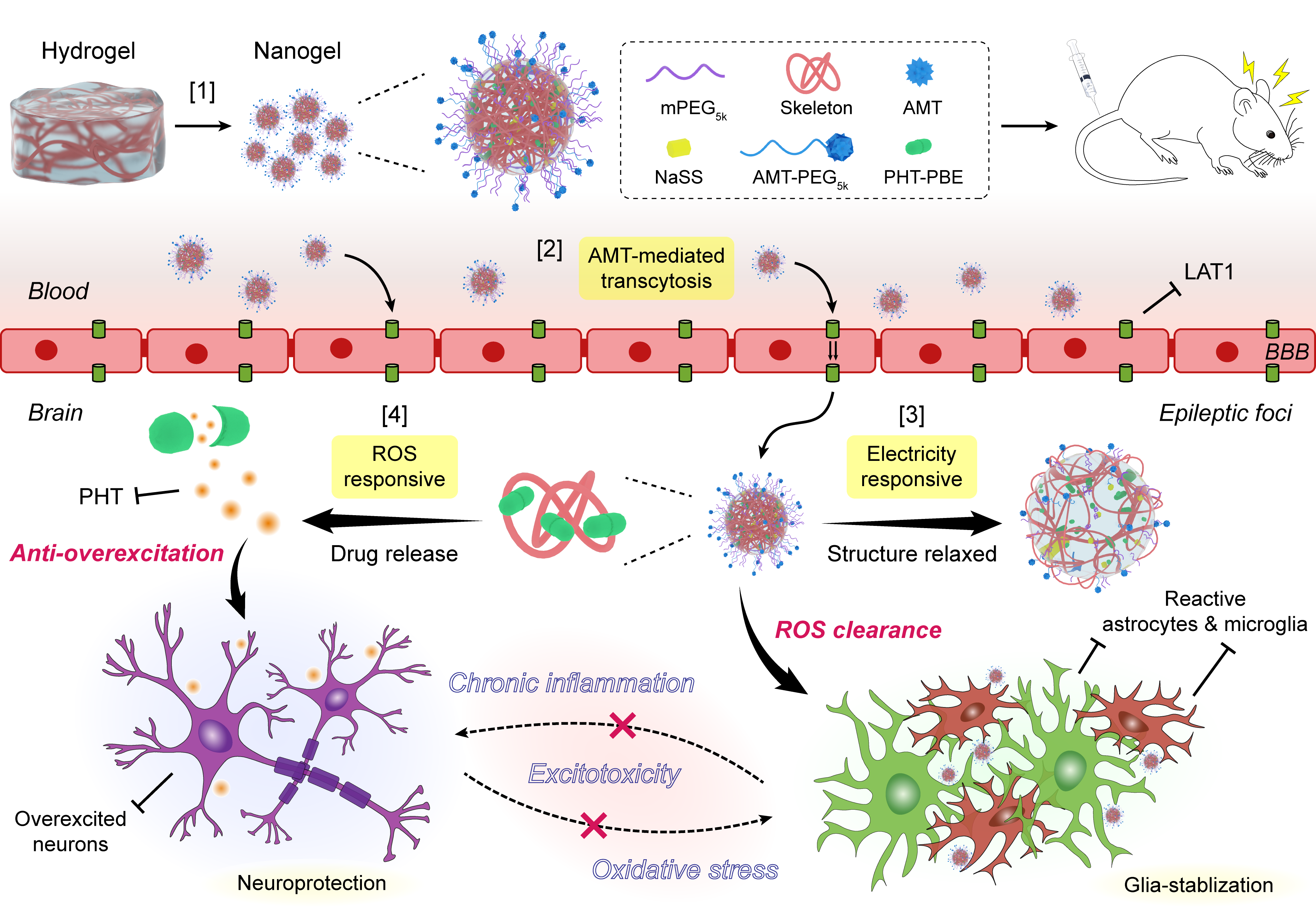
Recently, the research group led by Prof. Chen Jiang has reported a hydrogel nanoparticle drug delivery system, or namely nanogel, which is hopeful to address several problems facing the currently prevalent anti-epileptic drug therapies in epileptic treatment. The study was published online in ACS Nano, named ROS/Electro Dual-Reactive Nanogel for Targeting Epileptic Foci to Remodel Aberrant Circuits and Inflammatory Microenvironment.

A reactive oxygen species-responding prodrug is designed based on a classic anti-epileptic drug to combine anti-epileptic drugs with relieving oxidative stress, and then covalently encapsulated in nanogel. The nanogel manages to cross the blood-brain barrier by targeting L-type amino transporter 1, and then degrades in epileptic foci under the stimulation of both reactive oxygen species and electricity. Anti-epileptic drugs are therefore, released to suppress aberrant firing and recover overexcited neurons. Meanwhile, prodrug in nanogel can also scavenge reactive oxygen species to relief oxidative stress and chronic inflammation, and stabilize glial cells. Through our treatment, not only the neurons are protected against excitotoxicity, but also the neuroglia are shielded from successive pathological activation. To conclude, this article presents a nanogel drug delivery system that efficiently regulates the epileptic microenvironment as a whole, and promises a more comprehensive solution to epilepsy.

Zheng Zhou, a Ph.D. student from School of Pharmacy, Fudan University, is the first author. Professor Chen Jiang is the corresponding author. The work was supported by grants from National Natural Science Foundation of China, Shanghai Municipal Science and Technology Major Project and ZJLab. Related research (DOI: 10.1021/acsnano.3c01140) has been available online powered by ACS Nano (2021 IF = 18.027). Please kindly refer to https://pubs.acs.org/doi/full/10.1021/acsnano.3c01140 for more information.